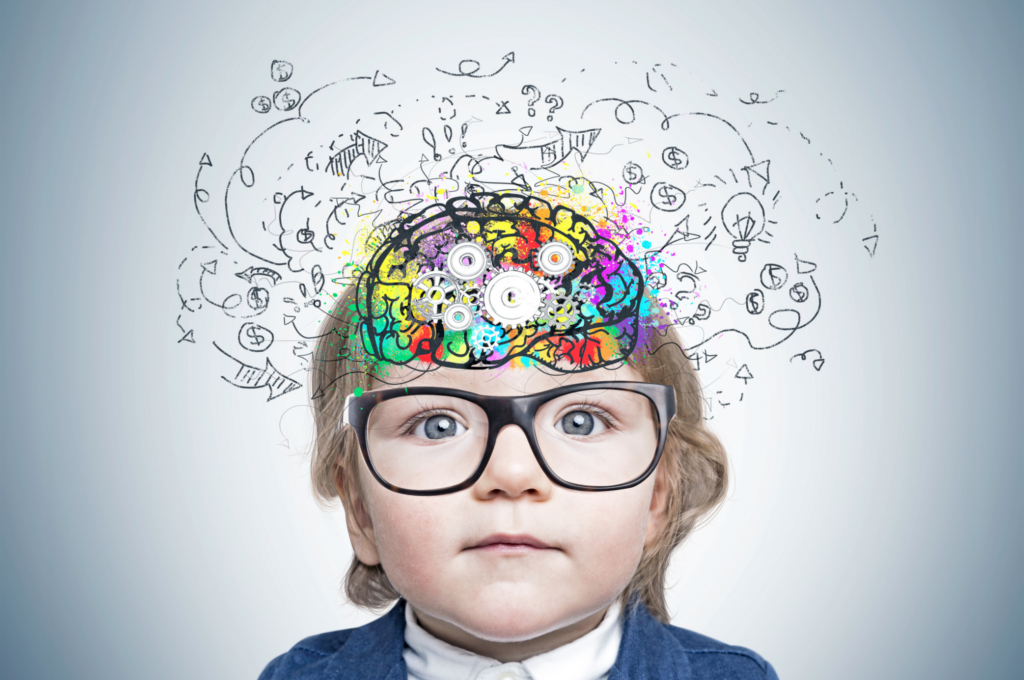It is common for early childhood education to be dismissed as just “playtime.” Although somewhat insulting to early childhood educators and curriculum designers, this widespread misconception is not all wrong if you consider that play has been found to be one of the best mediums from which children learn. But the fact of the matter is that providing positive experiences and well-designed learning environments during the early childhood years isn’t just for fun. Between 0-5 years, these interactions actually help to properly shape a child’s developing brain architecture. During this time any interventions that attempt to support physical, social, emotional, and cognitive development are not only welcome, they are necessary and encouraged.
A well-balanced early childhood education that includes stable and responsive relationships between child and caregiver(s) creates a solid foundation in the early years and can positively affect all future learning, behavior, and health. This is backed by several studies which followed children who entered quality early education programs and were compared to children who did not have this privilege. The consistent and significant boost that was found when they entered school is well-documented, referred to as “the school entry boost.”
Healthy Brain Architecture
Between birth and age three the developing brain is busy forming billions of connections between individual neurons. At this time the brain is very elastic and is soaking up information from experiences and relationships. When a child is given opportunities to explore, discover, perceive, create, and imitate in a safe environment, this positively affects brain architecture. Parents, caregivers, or quality early childhood education centers which focus on providing these kinds of opportunities for children to create meaning from play are ideal for healthy brain development. When a child in this setting also develops responsive serve and return relationships, this adds to the strength of brain architecture.

Serve and Return
Serve and return is the term used to describe a relationship between caretaker and baby/toddler in which both parties take turns interacting. Perhaps an adult’s smile is met with a toddler’s babble, and then the parent verbalizes, “I see the puppy! It’s so cute!” and this goes on- the serve and the return. Now imagine a parent who is simultaneously trying to manage both the needs of their young child and their job.
They will not be able to effectively participate in a consistent serve and return relationship with their child. According to Harvard University’s Center of the Developing Child, “If an adult’s responses to a child are unreliable, inappropriate, or simply absent, the developing architecture of the brain may be disrupted, and subsequent physical, mental, and emotional health may be impaired. The persistent absence of serve and return interaction acts as a “double whammy” for healthy development: not only does the brain not receive the positive stimulation it needs, but the body’s stress response is activated, flooding the developing brain with potentially harmful stress hormones.”
Beyond Basic Skills
As babies begin to grow into toddlers, and toddlers into young children, the need for a social structure becomes more important. Children are learning how to interact with others and are beginning to understand that their worlds are filled with people who are in constant interaction with other people. Early childhood education is often seen as just a jumpstart on basic academic skills such as “ABCs and 123’s” but the benefits go beyond just learning entry level academics. Early education is a way for young children to begin to learn the social and emotional skills they will need to be able to successfully relate to people for the rest of their lives.
When a healthy bond is formed between the child, parent, and teacher or caregiver, this lays the groundwork for future educational experiences. When children are able to interact with peers in a safe setting, it can build their confidence, independence, and self-esteem and it results in greater resiliency. When young children are in a quality childcare setting and are exposed to other children outside of their family, they learn such things as what acceptable social behavior is, how to regulate their bodies, and the proper way to invite another child to play. All of these learned skills go into their social-emotional tool kit. Important skills such as cooperation, respect for others, taking turns, understanding social cues, etc., are constantly refined and will continue to be helpful and necessary throughout school, work, and daily life.
Choices, Choices…
When considering which early childcare center to choose, it is important to think about what is best holistically for your child. Preschools that only focus on one aspect of education, such as academics, might be ignoring important research which emphasizes the importance of other domains that need development at this level for healthy brain development. Centers which have no structure whatsoever, may lack personal engagement and the serve and return attention that a child’s brain needs for healthy development.
Take a tour of any prospective preschool and look for balance in their approach to learning. Are they addressing all of the domains of learning- social, emotional, physical, cognitive, and linguistic? Try to find evidence of this learning. Also consider what style of learning best matches your child. A very confident child may thrive in a center which has less structure, while a more cautious child may feel safer in a semi-structured environment in which they know what to expect. And of course, look for nurturing staff members who seem to be enjoying their time with the children, specifically in the room your child will be in.

Finding the right fit for an early childhood education center can feel intimidating. It is never easy to release your child to people who are essentially strangers at the start of the journey. However, with time, a little luck, and some hard work (which includes diligent screening of potential centers), you are sure to find a second home for your precious little one with staff members who will likely begin to feel like family. The end result will be worth it!

